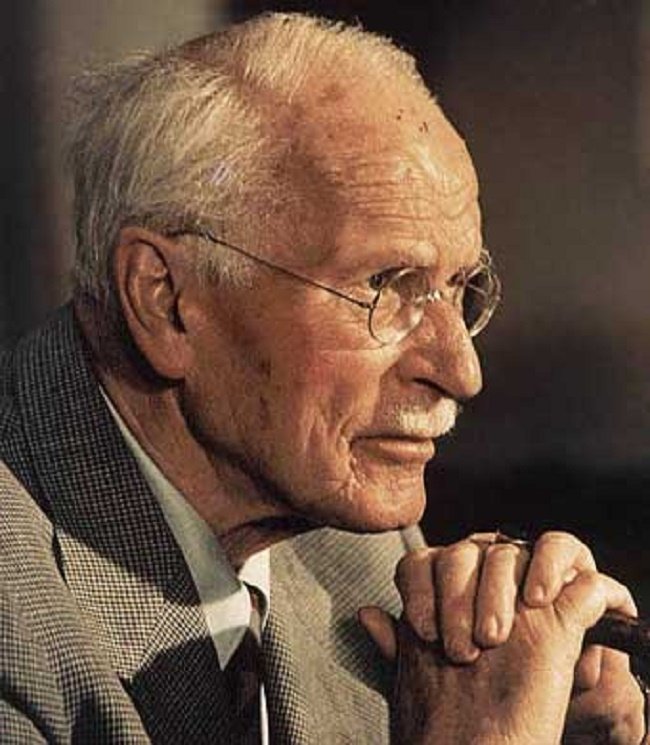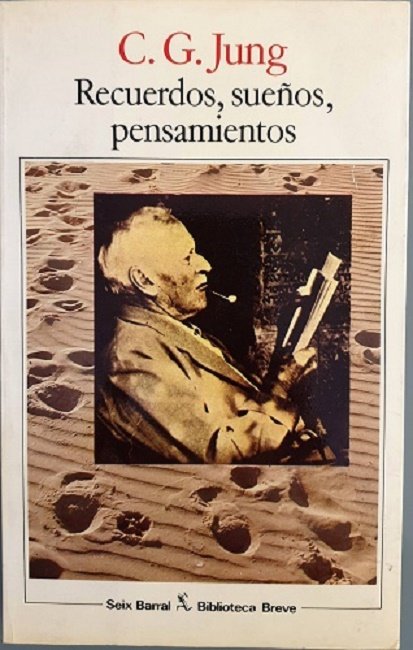Microficción para C. G. Jung | Microfiction for C. G. Jung
Cómo obviar a ese autor, Carl Gustav Jung, por cierto, nacido el 26 de julio de 1875, que tanto ha influido en el pensamiento acerca del ser y su carácter individual y colectivo, particularmente con su aporte conceptual: inconsciente colectivo, y sus derivaciones o sustentos, como la noción de arquetipo, entre otras (extroversión - introversión). Y de suma importancia en la literatura, al "iluminar" obras como las de Hesse, Borges, entre muchos otros.
De su rica biografía pueden leer en la referencia indicada arriba. En su honor, intenté una microficción donde, pese a sus obvias limitaciones, pudiera comunicar algo de sus aportes y su significación.
============
How can we ignore that author, Carl Gustav Jung, by the way, born on July 26, 1875, who has influenced so much the thinking about the self and its individual and collective character, particularly with his conceptual contribution: *collective unconscious, and its derivations or underpinnings, such as the notion of archetype, among others (extroversion-introversion). And of great importance in literature, by "illuminating" works such as those of Hesse, Borges, among many others.
You can read about his rich biography in the reference above. In his honor, I attempted a microfiction where, despite its obvious limitations, I could communicate something of his contributions and significance.

Al salir de la sesión de imaginación activa, aún, en cierto modo tembloroso, escribió en uno de sus cuadernos:
Pude tener en esta visión dos imágenes muy fuertes: una piedra angular, sobre ella el fuego del hogar, quizás padre y madre. Luego, un niño, en medio de la neblina del lago y el bosque, con una casa de piedra al fondo. Y de pronto, una hermosa mujer que me cubría con una manta, tal vez mi hermana o Emma. Hasta ahí se mantuvo la conexión. Quisiera volver a una visión como esa, que me reconciliara con mi ser profundo, aunque sea para reconocerme en mis ausencias interiores y equívocos.
Me dediqué a indagar en el inconsciente, el inmenso campo abierto por Freud, pero a conciencia de que “Lo inconsciente es necesariamente inconsciente”. Mas, lo hice a sabiendas de una opción que el ´maestro` no aprobaba.
Sé que he sido tildado de pretencioso místico, de psicólogo desviado… La única certeza es que no he abandonado mis inquietudes, preguntas y desazones. He vivido afrontando duras crisis personales, como las de mi separación del maestro Freud, o las vividas con Emma, mi esposa. También las que revelaron el mal de nuestra humanidad, sobre todo las guerras, que cuando las recuerdo abren una honda herida, tema que he tratado en mi obra, pero que seguramente no ha sido bien vista, como lo que desarrollé en un libro que aprecio, Respuesta a Job, en una relación muy autónoma con el judeocristianismo.
El cientificismo predominante en la psicología, además de mis crisis, me llevó a indagar en campos casi prohibidos. Por el mito, esa fuente nutricia, llegué a la alquimia y al Libro de las Mutaciones (I Ching), y me acerqué a nuestra signada, pero cambiante cultura espiritual. Entreví que todo estaba relacionado profundamente, lo que confirmó mi propuesta de “inconsciente colectivo”.
"No es que Dios sea un mito, sino que el mito es la revelación de una vida divina en el hombre. No somos nosotros quienes inventamos el mito, sino no que este nos habla como una Palabra de Dios", así dije alguna vez.
Espero que algo quede de esto, un testimonio, aunque sea un papel suelto.

As he left the active imagination session, still, somewhat shakily, he wrote in one of his notebooks:
I could have in this vision two very strong images: a cornerstone, above it the hearth fire, perhaps father and mother. Then, a child, in the middle of the misty lake and forest, with a stone house in the background. And suddenly, a beautiful woman covering me with a blanket, perhaps my sister or Emma. So much for the connection. I would like to return to a vision like that, which would reconcile me with my deepest self, if only to recognize myself in my inner absences and misunderstandings.
I dedicated myself to investigate the unconscious, the immense field opened by Freud, but with the awareness that "the unconscious is necessarily unconscious". However, I did so in the knowledge of an option that the 'master' did not approve of.
I know that I have been branded as a pretentious mystic, as a deviant psychologist... The only certainty is that I have not abandoned my concerns, questions and dissatisfactions. I have lived through hard personal crises, such as those of my separation from Master Freud, or those I experienced with Emma, my wife. Also those that revealed the evil of our humanity, especially the wars, which when I remember them open a deep wound, a subject that I have dealt with in my work, but that surely has not been well seen, such as what I developed in a book that I appreciate, Answer to Job, in a very autonomous relationship with Judeo-Christianity.
The predominant scientism in psychology, in addition to my crises, led me to inquire into almost forbidden fields. Through myth, that nourishing source, I came to alchemy and to the Book of Mutations (I Ching), and I approached our significant but changing spiritual culture. I saw that everything was deeply related, which confirmed my proposal of "collective unconscious".
"It is not that God is a myth, but that myth is the revelation of a divine life in man. It is not we who invented the myth, but rather that it speaks to us as a Word of God", as I once said.
I hope that something remains of this, a testimony, even if it is a loose paper.
Referencias | References:
Jung, C. G. (1989). Recuerdos, sueños, pensamientos. España: Seix Barral.
Jung, C. G. (1973). Respuesta a Job. México: Fondo de Cultura Económica.
https://es.wikipedia.org/wiki/Carl_Gustav_Jung
https://en.wikipedia.org/wiki/Carl_Gustav_Jung

Gracias por su lectura | Thank you for reading.



https://twitter.com/jorma08/status/1552872939921575936
The rewards earned on this comment will go directly to the people( @josemalavem ) sharing the post on Twitter as long as they are registered with @poshtoken. Sign up at https://hiveposh.com.
I really haven't heard of him but I'm going to do my research about him. He seems an interesting person I would like to tap from his wealth of knowledge and experience. Thanks for sharing this. I appreciate it
Along with Sigmund Freud, Jung is one of the two main pillars of modern psychology, the founding psychiatrist of analytic psychology or deep psychology. Greetings, @luckydrums.
Muy interesante tu post amigo, gracias por compartir 💯🤗😊💜
Gracias a ti por tu visita y apreciación, @karelysk89.
Esta publicación ha recibido el voto de Literatos, la comunidad de literatura en español en Hive y ha sido compartido en el blog de nuestra cuenta.
¿Quieres contribuir a engrandecer este proyecto? ¡Haz clic aquí y entérate cómo!
Siempre me he sentido atraída por las enseñanzas de Jung, pues suele ser mas profundo y menos mundano que Freud, aunque siga sus enseñanzas. Me encantan tus minirelatos o microficción, Gracias por hacerlos!!
Gracias por tu lectura y comentario, @caracasprin. También para mí son más atractivas las tesis de Jung, sin negar el valor del aporte fundacional de Freud. El mismo Jung, aunque lo respetaba y reconocía, se distanció mucho de algunos de los postulados de Freud, como esa lectura estrictamente sexual que daba a la represión y los complejos. Saludos.